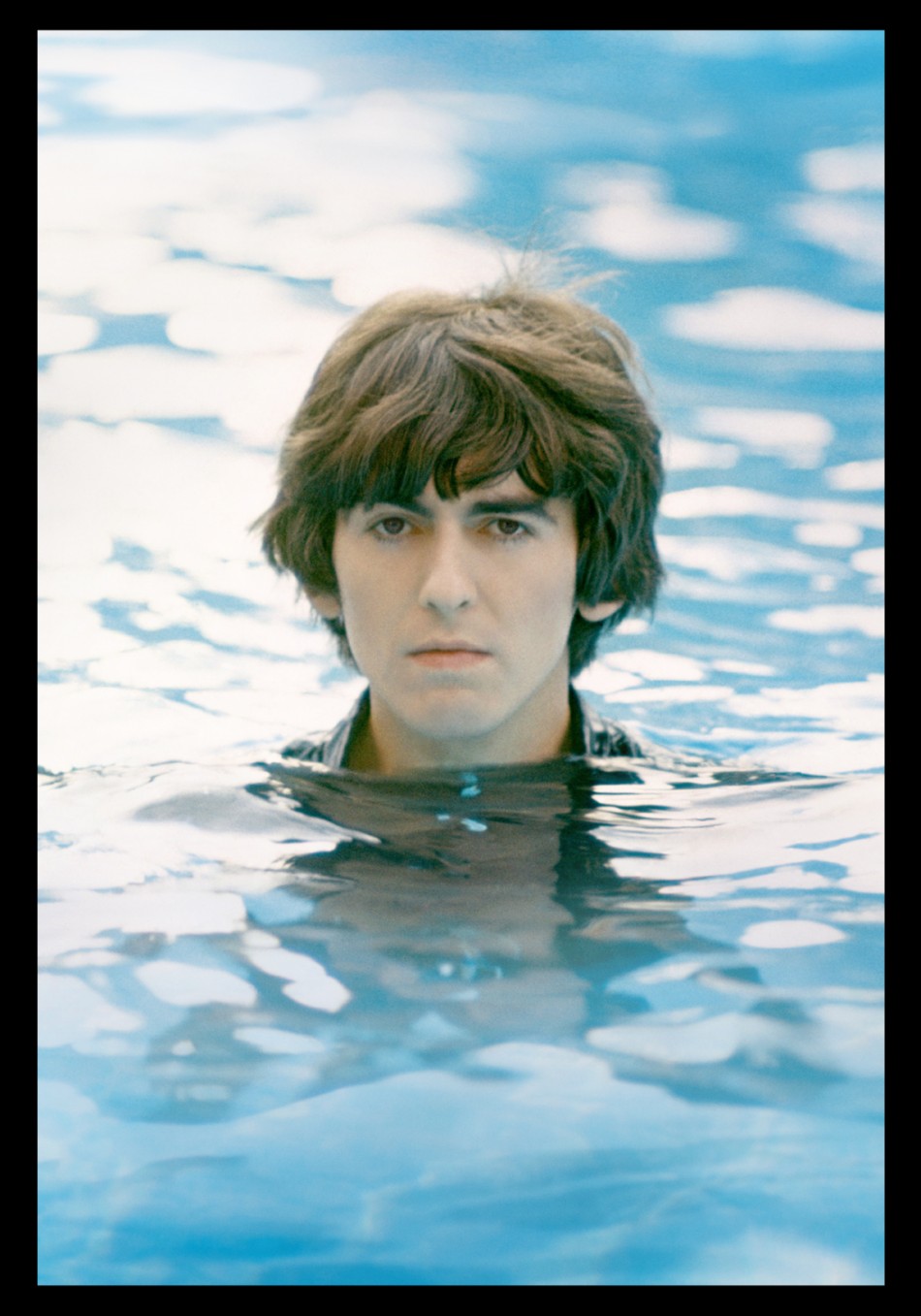
George, by Scorsese
George Harrison: Living in the Material World, a documentary by Martin Scorsese (at the New York Film Festival- later to air on HBO)
Quiet George Harrison was the least-scrutinized of the Beatles, unless you cared about Indian music. Harrison didn’t talk much. He didn’t sing all that much. And most of the time his personality didn’t stand out. He couldn’t shout like John Lennon. When he disappeared from view for a while, word didn’t go out, as it did with Paul McCartney, that he was dead.
In Martin Scorsese’s new documentary, George Harrison: Living in the Material World, Paul McCartney says that he and Lennon invited Harrison to play with them because he actually knew how to play the guitar. Hey, that’s an idea.
Early shots of Harrison playing with the boys in pre-WW2 Hamburg and the sound of the Beatles before George Martin took over show their debt to Carl Perkins and Chet Atkins. Like Atkins, Harrison played a Gretsch guitar. There’s a groove that you can hear in the early Beatles songs in the doc that’s minimal without being belabored – oh, for the days before Garage Band became a phrase for the marketing department..
You probably didn’t know that the four signature notes of “And I Love Her” were Harrison’s idea. You probably also didn’t know that Harrison paid for The Life of Brian, the Monty Python comic sacrilege, mortgaging his house to do so. It cost something more than $4 million. Those were the days. If all Harrison did was to introduce Ravi Shankar to a generation, he would be important.
Ringo Starr, who was close to Harrison and close to his son, Dhani (see The Concert for George – an early draft of a remembrance of the guitarist – to get a better sense of who Harrison’s friends were), described George as someone who would always do something for a friend. When Harrison was grasping at anything that even remotely gave him hope against the cancer that was consuming him inside, Starr had to leave his friend for Boston, where his own daughter was suffering from a brain tumor. “Do you want me to come with you?” asked the feeble guitarist. Starr tells the story, shedding the only on-camera tear in the doc of almost four hours.
Harrison was not a prodigious soloist, although he had a style all his own. Hot licks weren’t at the core of the Beatles’ sound, anyway. He would eventually leave most of that that job to Eric Clapton, who played memorably on Abbey Road. Clapton, who would also steal Harrison’s long-time girlfriend, Patty Boyd, is surprisingly eloquent about the perils in the path of friendship when fame attacks. You’’ll find a lot more of that in Keith Richards’s memoir.
Harrison emerges from the doc as a solid guitarist, a good mate, and a man whom no one seems to have despised. How many rockers can say that about themselves?
Left out, unfortunately, is a lot — like George’s contribution to Help! (“I Need You”), his sweet rhythmic and harmonic experimentation on Rubber Soul (“If I Needed Someone”), and the breakthrough Revolver, on which he sings the acidly witty Taxman. Here was one track on which Harrison can claim a solo that tears its way to you like a knife. It must have been recorded the week those tax bills came due.
Scorsese (who seems to have left the actual interviewing to someone else) also could have dug more deeply into Harrison’s drug days in Los Angeles in the early 1970’s, which seemed to overlap, as Lennon’s did, with Phil Spector. On camera, Spector has a lot to say about the Beatles’ sound – together and separate. You appreciate what made Spector what he was to pop music. He could hear a song and tell you what you had to do to make an audience want to hear it.
Absent as well is the grim scandal at the end of Harrison’s life, when a doctor treating him at Staten Island University Hospital (you can imagine how desperate Harrison was if he went to Staten Island for treatment) got the dying guitarist to sign a guitar and autographs for the doctor’s children. You can’t help but think of “While My Guitar Gently Weeps.” Harrison’s widow sued, and got an approximation of justice.
Toward the end, Harrison was a longtime husband to his wife Olivia, with whom he survived a murderous attack on his house outside London. True to form, he was a friend to his peers, founding the Traveling Wilburys, which may be the worst band formed by the best friendships in rock history.
Harrison was nothing if not mixed in the music he made after the Beatles. There were times in the 1970’s when the critics had turned on Harrison so overwhelmingly that he couldn’t get arrested. At the time, it wasn’t such a bad status, since Harrison was strung out on drugs.
Don’t despair. Harrison is an easy man to like. You can still fill the many musical gaps in Scorsese’s appreciation with the good stuff. As Scorsese shows us, there’s plenty of it.

You definitely do not know much about who did what when. Clapton did not play on Abbey Road nor did he steal George’s girlfriend Patty. That was Georges wife of many years and Clapton played on While My Guitar Gently Weeps on The Beatles album. George did not play the lead on Taxman. That’s Paul tearing it up. George was my idol and I will always love him. Peace!